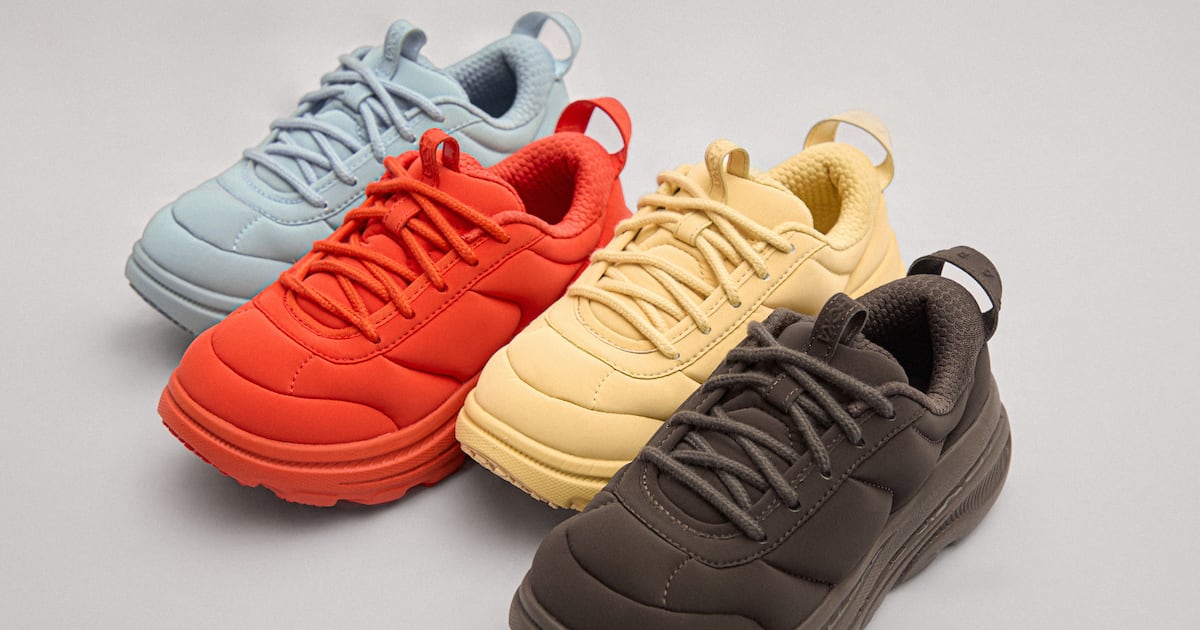
Popular sportswear company Hoka has been accused of failing to acknowledge the MÄori origins of its name by Indigenous intellectual property experts in New Zealand, making it the latest in a string of global brands to be accused of misappropriating MÄori culture.
The French American firm, which specialises in running shoes, takes its name from the MÄori word hoka, meaning âto fly.â Its logo, a bird in flight, mirrors the wordâs meaning, as does its tagline âfly, human, fly.â
In its early days, the company attributed its name â which was then Hoka One One, loosely meaning âto fly over the earthâ in MÄori â to the âancient MÄori language.â That attribution disappeared from its âaboutâ section after Deckers Brands took ownership in 2012. The brand now makes no mention of the nameâs origin on its website.
âIf they donât want to associate themselves as being a MÄori word â they need to stop using it,â said Lynell Tuffery Huria, who is recognised as the first MÄori patent attorney and is a leading expert on Indigenous intellectual property rights.
âWhy are you using that word if youâre not prepared to acknowledge its whakapapa [origin] and its history and to engage with the Indigenous people from which the word comes from?â she asked.
Hoka has not responded to The Guardianâs requests for comment.
MÄori words, concepts and motifs â be they tattoo, design or art â are often rich in meaning and history, and their use is frequently governed by a set of protocols, or tikanga. Not observing tikanga risks undermining MÄori culture, and puts brands at risk of being challenged, Tuffery Huria said.
In recent years, a number of international brands have faced criticism for using MÄori words and imagery. In 2020, Formula One driver Fernando Alonsoâs clothing line was accused of cashing in on MÄori culture. A year later, a UK carpet company was criticised for using MÄori culture to sell carpet. Gaming companies have come under fire for using MÄori tattoos on their characters, while social media companies have faced outrage for creating MÄori facial tattoo filters.
In New Zealand, Air New Zealand prompted outrage when it attempted to trademark an image of the MÄori greeting âKia Oraâ in 2019. That same year, a cruise ship company was forced to apologise after its staff dressed up in wildly inaccurate MÄori costumes to perform a greeting for its guests. Beer companies have similarly faced backlash for using MÄori ancestors on their bottles.
Tuffery Huria is not against brands using MÄori words, as long as they have followed best practice, including consulting with Indigenous communities.
âWe want to share our culture, we want to share our language, we want to share our narratives ⦠but it needs to be respected and protected in a manner thatâs consistent with how we view it.â
Two of Hokaâs shoe styles â Arahi and Hopara â also take their names from MÄori. Hopara should be spelled hÅpara, and means âto explore.â Arahi can mean âto leadâ and, in some contexts, its use is considered sacred, says Dr. Karaitiana Taiuru, a leading intellectual property rights expert.
âBy putting something sacred on your feet, or on your shoes, itâs kind of saying you have got no respect for the culture. Thatâs quite offensive,â Taiuru said, adding that it would be akin to putting an image of a royal family member on the bottom of his shoe.
A Hoka video on social media from 2019 shows a MÄori musician teaching viewers how to pronounce the brandâs name correctly, during MÄori language week. But in the companyâs more recent videos, the word Hoka and itâs MÄori-named shoe styles, are mispronounced.
Hoka should, at a minimum, pronounce its own name correctly, Taiuru said.
âBy not doing it, that shows a huge amount of disrespect.â
There is a very fine line between appropriation and appreciation of cultures, Taiuru said, and the best way brands such as Hoka can honour Indigenous cultures is to consult with them.
âIf youâre going to use someone elseâs culture for your own product, you should at least know what the value of that cultural item is and acknowledge it.â
By Eva Corlett
Learn more:
Exclusive: Inside Hokaâs Fashion Ambitions
In a new collaboration with Marni, the running brand known for its chunky, cushioned midsoles is looking to catch the eye of a new fashion audience â without compromising the performance DNA thatâs made it an emerging sneaker powerhouse.

